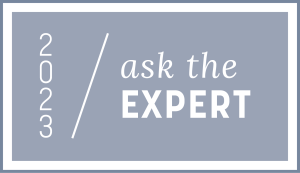
Q&A
What Do I Need To Provide To Prequalify For A Loan?
I’ve been lending for more than 24 years and have found that pre-underwriting the loan prior to issuing the pre-qualification letter produces the best results for a smooth loan closing. Unless there’s an issue with the title commitment or appraisal, the mortgage process is swift when loans are underwritten in the beginning. To pre-qualify, most recent: 2 years of W-2 forms, 30-days of pay stubs, 60-days of bank statements, 2 years of personal tax returns, plus a photocopy of identification. And we may need written verification of employment which breaks down any overtime and bonus income. If self-employed, documentation gets a bit more complicated.
Am I A Good Candidate For An Fha (Federal Housing Administration), Or Fannie Mae (Fnma), Freddie Mac (Fhlmc) Loan?
Customarily, FHA loans were great for homebuyers that have excessive debt, lower credit scores, and a limited amount for the down payment. Recently, more borrowers with higher credit scores have been seeking FHA loans for additional buying power provided the homeowner is buying within FHA county loan limits. A key difference between FHA and conforming FNMA or FHLMC are the loan limits and the mortgage insurance (MI). The allowable loan limits on conforming loans are much higher than FHA. Another distinction between the programs is mortgage insurance.
In March 2023, HUD lowered the monthly insurance premium by 30 basis points. FHA loans now compete with conforming FNMA and FHLMC loans with MI. Potential homeowners need to know FHA loans have upfront mortgage insurance that’s financed into the loan which eats away at the equity position as well as a monthly mortgage insurance premium paid through the monthly mortgage payment. On FHA loans, homebuyers are married to the monthly mortgage insurance premium for the life of the loan unless they refinance into a conventional loan with a 20% equity position. Conventional loans such as FNMA and FHLMC require private mortgage insurance (PMI) when the homebuyer doesn’t have 20% to put down. The monthly premium is based on the credit score, down payment, and loan program. The MI should automatically drop once the borrower ascertains a certain amount of equity.
What Type Of Interest Rate Will I Get?
That’s dependent on many factors including credit score, loan program, down payment, and occupancy type. Do you intend to reside on the property, utilize it as a second home, or rent it out? Can you obtain financing through a traditional mortgage such as FHA, FNMA, FHMLC or do we need to structure the loan as a non-qualified mortgage using non-traditional methods of calculating income and assets? All this plays into the interest rate.
Is My Loan Going To Be Sold On The Secondary Market?
Probably. In most cases, the loan is being sold into the secondary market and one of the “Fs” (FHA-HUD, FNMA or FMLC) will become the investor. Many lenders sale the servicing rights to the investors which is where the mortgage payments are made and will service the loan until it’s paid off.











